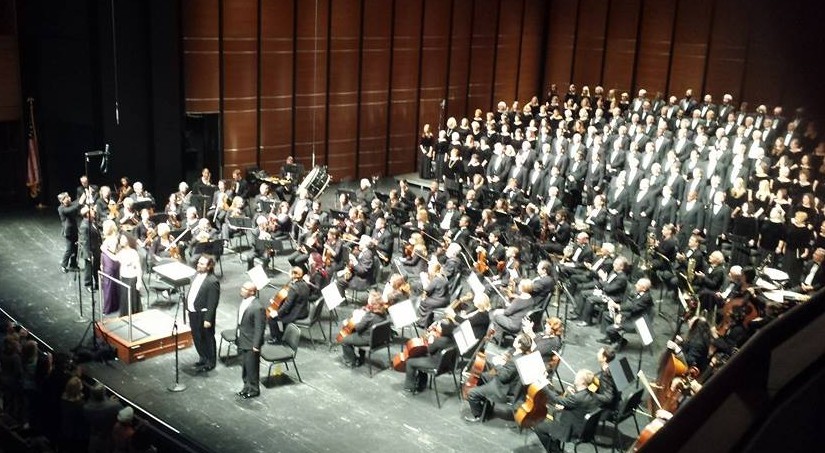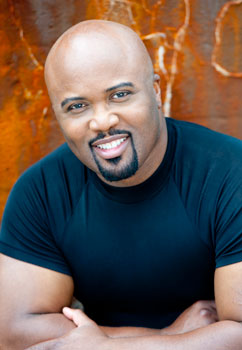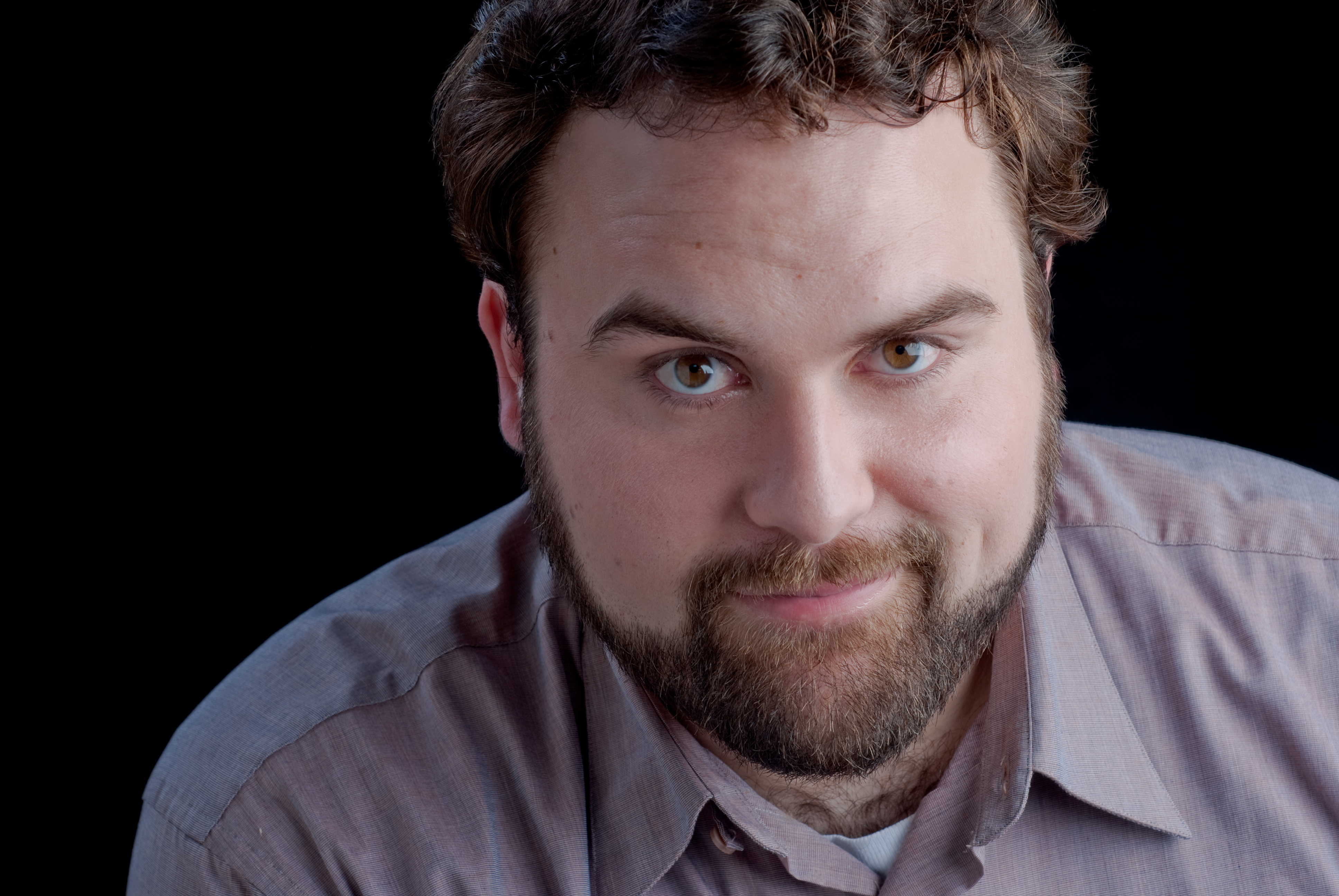Don't You Messa With Me, Giuseppe
 ASO and Chorus Austin perform Verdi’s Messa da Requiem. 11/02/13
ASO and Chorus Austin perform Verdi’s Messa da Requiem. 11/02/13
7:59pm. A friend and I rush into the foyer as the doors close behind us. The excitement is too much for my impetuous bladder. I take a gamble and manage what must be, in terms of liters per second, the fastest urination of my life. I'm ducking into the hall just as applause breaks and tonight's quartet takes the stage.
 Baritone Kevin Short
Baritone Kevin Short
No time to read the program for names. I'm going in dry, as is said. I take wardrobe notes in score-order: soprano is a platinum blonde in a fitted purple dress punctuated by a flashy necklace of Vaticanic proportions; mezzo has a big brown 80s perm (edit: her actual curls!), a sequined off-white blouse and a long black skirt; tenor is a tuxedo'd giant with an especially operatic build; baritone is shorter, with cartoonishly broad shoulders and a polished crown.
My heart is still racing as the orchestra sets to work in breathless fashion. The 180-odd voices of the Chorus Austin manage a pristinely articulated "re-qui-em," soft yet defined, much like the mezzo's blouse. I'm scribbling about scalloped potatoes and meringue in the margins of my notepad when the tenor chimes in with a rich candor. The powerful baritone follows with soprano and alto on his heels. With his authoritative stance, Mr. Baritone is particularly captivating, delivering low tones with unwavering amplitude.
 Mezzo-Soprano Kathryn Findlen
Mezzo-Soprano Kathryn Findlen
There is a brief coughing and shuffling between the Kyrie and Dies irae, though I might have preferred the shock of an attacca. There will be no intermission tonight. The man next to me draws up a water bottle and I am admiring his foresight. "Might be my only chance," he says. It's my chance to skim the program for names.
One is never prepared for the Dies irae. The bass drum is positioned right behind the poor second violins, and a virile Maestro Bay cracks it like a whip. There is brilliant coordination between a tight-knit trumpet section and backstage brass---no small feat considering the tricky camera-work involved---and their fanfares multiply into a harrowing climax out of which baritone Kevin Short emerges with a tragic, expressive soliloquy.
 Soprano Mela Dailey
Soprano Mela Dailey
Mezzo-soprano Kathryn Findlen takes the reigns. Her voice is strong and versatile, ranging from near grovel to belting declaration. A noodly bassoon enters the fray with fantastic personality---I think I'm falling in love with the ASO bassoons. As the soloists trade the spotlight, imbalances begin to come into focus. At times, believe it or not, soprano Mela Dailey is outgunned by her more dramatic counterparts.
Will Davenport enters with the romantic tenor aria "Ingemisco", rising to a glorious finish. In terms of Mass-appropriateness, the melody's "Ave Maria" lilt covers little for the its otherwise Earthly passion. "It is very important to remember that Verdi never intended the Requiem to be used as part of a church service," says the playbill. "It was, in fact, written as a public tribute to [Verdi's friend, the poet and novelist Alessandro] Manzoni, that happened to be initially performed in a church, and which consisted of the writings of the traditional Roman Catholic liturgy. It's relationship to religion ended there."
 Tenor William Davenport
Tenor William Davenport
The mighty Kevin Short and a well-balanced orchestra carries the Dies irae into the rich and woozy chorus of its final section, the "Lacrimosa."
Cellos make good work of the infamous Offertorio excerpt, beckoning the champagne-voiced Davenport for a round of sweet somethings before the whole orchestra launches into a triumphant Sanctus. Findlen blends with Dailey in the angelic Agnus Dei duet, but gets her chance to shine in the opening of Lux aeterna. Her solo is timid, perhaps, but sturdy, and with bell-like clarity.
Libera me sees Dailey finally unleashed. She is feeling the aria, but the deliver-me-o-lord-from-eternal-death drama is not articulated in her side-to-side body language, and I feel insufficiently emotionally escalated (read: again unprepared) for the rock and roll Dies irae recap that follows. The spring-stepped choir engages her, lifting the Requiem to its contrapuntal culmination and then back into solemn repose.
The audience is fair in its distribution of "bravos" and whistling: in this regard, Short is the definitive victor tonight.